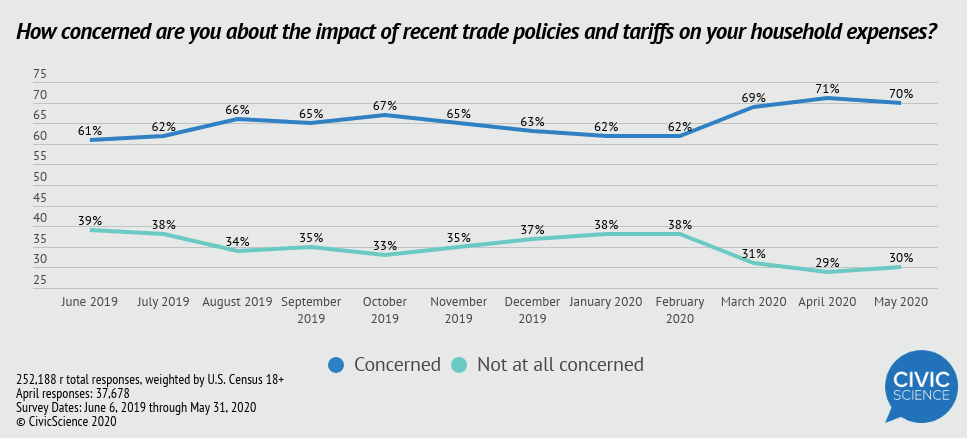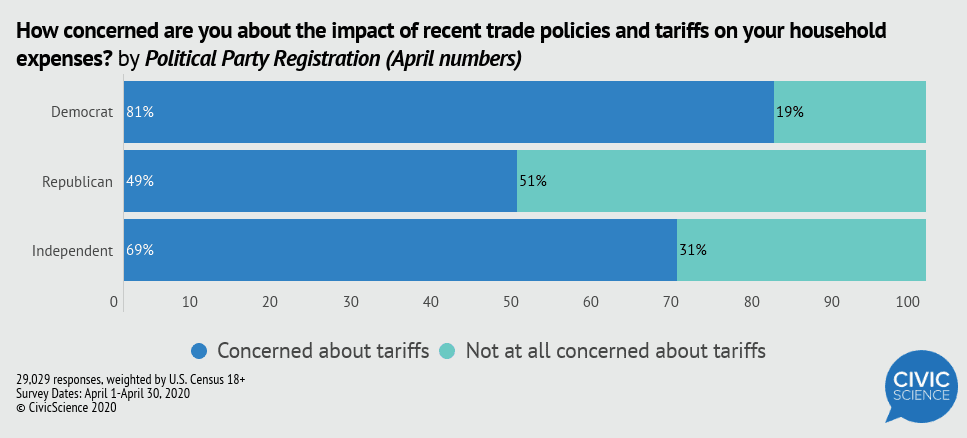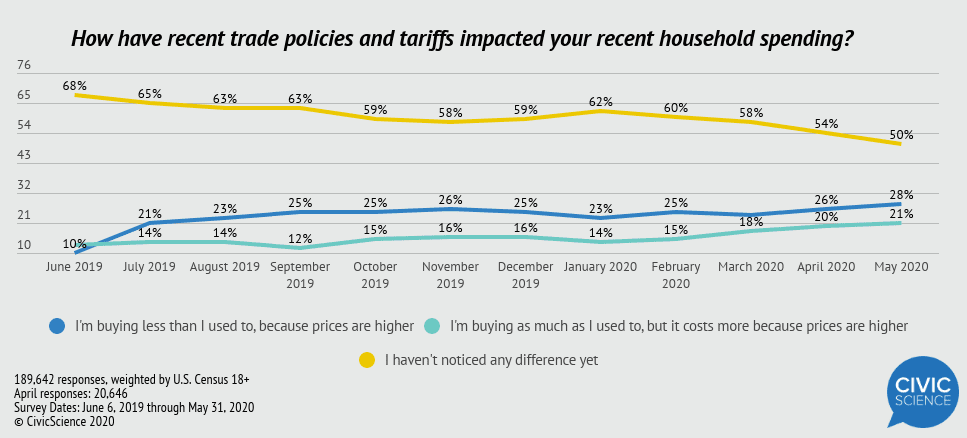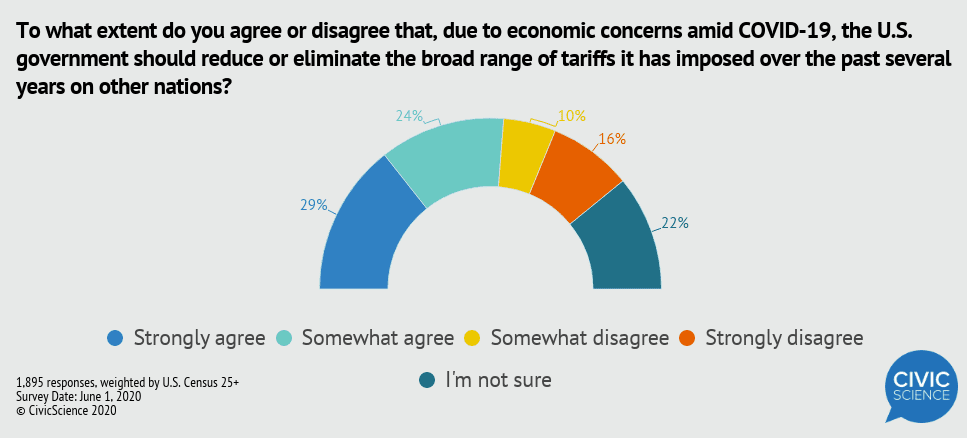As people continue to file for unemployment and those who managed to keep their jobs thus far are largely on edge about their futures, concern over tariffs among the U.S. adult population is just as high as it was last month, with a drop of only 1 percentage point.
As evidenced in another recent study, concern over anything finance-related right now crosses all income brackets. In this case, even those who make $125k+ annually are concerned about the impact of trade policies and tariffs at a still substantial rate (63%).
We see this in COVID-19 job impact comparison, too. While those who have lost their jobs are the most concerned (over-indexing compared to the general population at 76% vs. 70%) the numbers remain high among those still working. Interestingly, the numbers are lowest among current remote workers (57%).
Checking in on political party affiliation, Democrats and Independents are slightly more concerned, by 3 percentage points respectively, in the May reading than they were in April. Republicans were unchanged.
An even bigger shift was seen in this reading compared to the last in the percentage of people reporting they’ve noticed that prices are higher and are buying less due to that fact.
Twenty-eight percent of people report they’re buying less than they used to because prices are higher, and this number continues to rise each month. On the flip-side, the percentage of adults who report ‘not noticing a difference’ in May decreased by 4 percentage points from April.
Ultimately, tariffs are a continued reality on a large number of goods coming into the U.S. that Americans rely on.
When asked if they agreed or disagreed that tariffs should be reduced or eliminated right now to help an already struggling economy (and nation at large), the majority of Americans 25+ said they agreed. Although many did say they were not sure.
The future is uncertain, and it remains to be seen what changes are made, if any, on U.S. international tariff policies. CivicScience reports on tariff concern on a monthly basis as policies continue to have an impact on the lives of all consumers, especially amid the pandemic.















